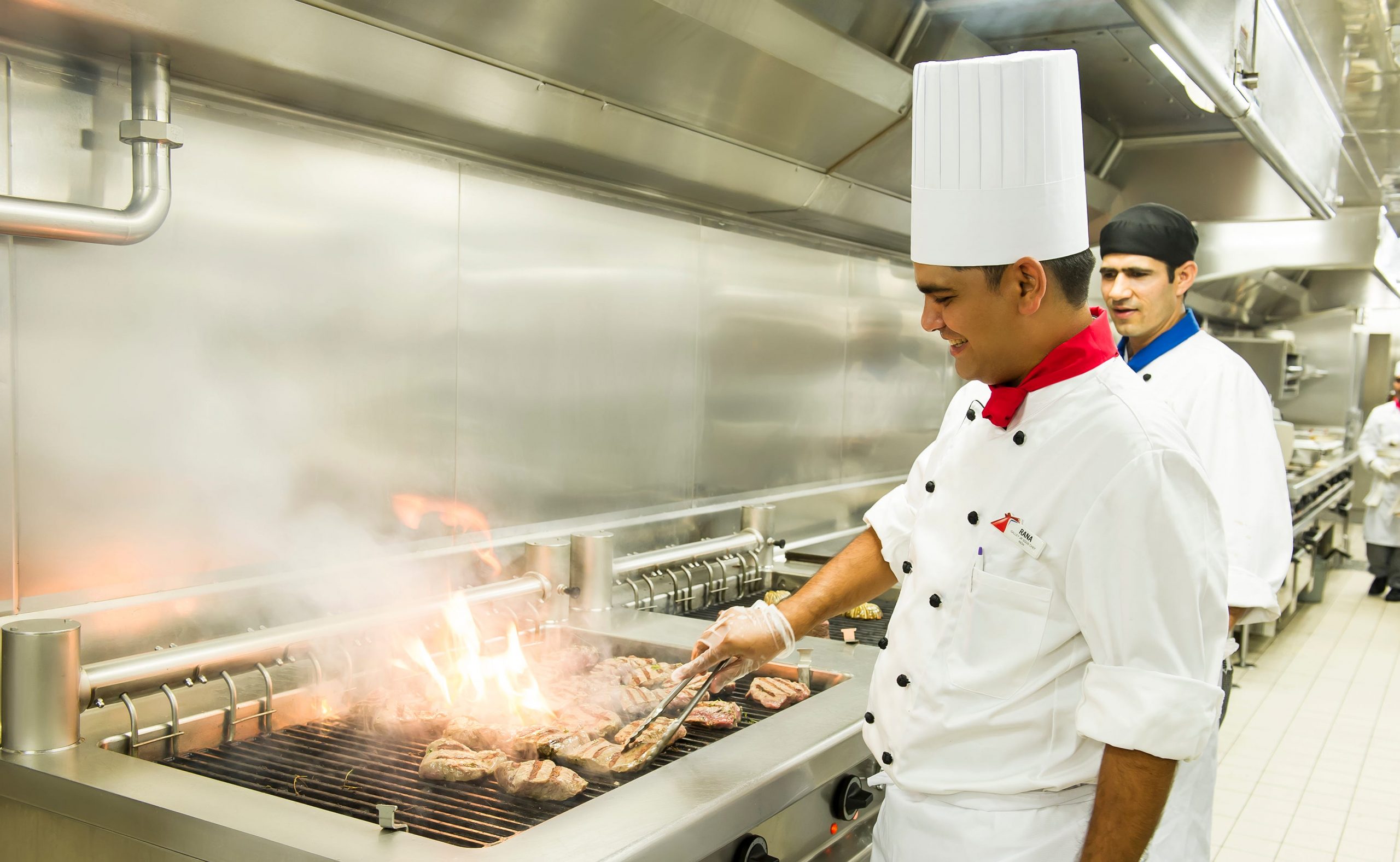- Many people are currently trying to plan at least a week’s worth of meals at a time to avoid too many trips to the grocery store.
- This can get difficult with limited fridge space and fast-spoiling produce.
- So, we asked a cruise ship chef – who is used to planning meals in advance and working with what he has on hand – about his best tips for making food last longer.
- Sanjay Dhall, Carnival Cruise Line’s senior director of culinary arts and food operations, advises avoiding processed produce and buying fruit at different stages of ripeness.
- Visit Insider’s homepage for more stories.
A third of the world is on lockdown. For most people, this means working from home if they can, and limiting their errands to the bare minimum.
In order to venture outside as little as possible, many people are stocking up on food and meal planning for a week or even two at a time.
But with limited fridge space and some fresh produce going bad quickly, this can be a challenge.
For cruise ship chefs, planning far in advance, stocking up on long-lasting items, being creative with produce on the verge of going bad, and working only with what they have on hand is the status quo.
In fact, on cruise ships, which make tens of thousands of meals a day for their thousands of guests, meals are usually planned months in advance.
Sanjay Dhall, senior director of culinary arts and food operations for Carnival Cruise Line, told Insider that food deliveries vary by the size of the ship and the number of guests and crew, but that a week's worth can be anywhere between eight to 20 semi-trucks full of food. Once a ship sets sail, that's what the chef has got to work with.
Dhall, who has worked as a cruise ship chef for 25 years, shares his best tips and tricks for making food last.
Stocking up on a diverse range of pantry staples is essential.
According to Dhall, your home pantry should have "nutritional yeast, a really good tomato paste, hot sauce, whole black pepper, maple syrup, miso paste, capers, anchovies, mustard, dried herbs, sea salt or kosher salt, lasagna sheets, dry pasta of choice, and EEVO [extra virgin olive oil]."
"This list kind of lays the foundation for a good basic flavor profile and flexibility while cooking," he said, adding that these items cover the bases of savory, sweet, and umami.
Stick to what you know.
"The trick today is to make a shopping list of items that you are most familiar with and use constantly. Impulse shopping is what creates the most waste," Dhall said.
He added that items you don't usually cook with, and that your partner or family members might not even like, will usually end up in the trash.
The less processed produce is, the longer it should last.
"Pre-processing greatly reduces the shelf life of a product," Dhall said, suggesting buying whole broccoli over cut florets, for example, and adding that broccoli stems can be used in stir fries and soups. "Not only am I prolonging my produce usability, but I am also maximizing the bang for my buck."
Make your produce last longer.
Dhall says to rinse and air dry leafy greens before wrapping them in paper towels to make them last longer. He also says to avoid storing them stacked on top of each other.
He also suggests using the crisper drawer for dairy and cheese rather than greens and delicate produce, as they will get stacked and crushed there, sometimes even forgotten. Racks allow for better cold air circulation and breathing when it comes to produce, according to Dhall.
Buy fruit in different states of ripeness.
"While buying fruit avoid buying the ripest ones," he said, adding that buying them at different stages of ripeness will allow them to ripen in your fridge and pantry. This way, you'll have a consistent assortment of fresh fruit, rather than a large batch threatening to go bad.
Take inventory of what you have before going shopping.
Dhall says you'd be surprised at the many things you probably forgot you still had, or didn't use during the week, and advises making a shopping list built around those items in order to incorporate them.
He also says learning how to pickle veggies or make chutney will extend the life of many food items before they spoil.
Get excited about your shopping list and the meals you're planning.
Dhall says not to see creating a shopping list as a chore, but as an adventure.
"Get excited about it: it is not a chore, it's an excursion. Involve and share it with someone who loves doing it as much as you do."

